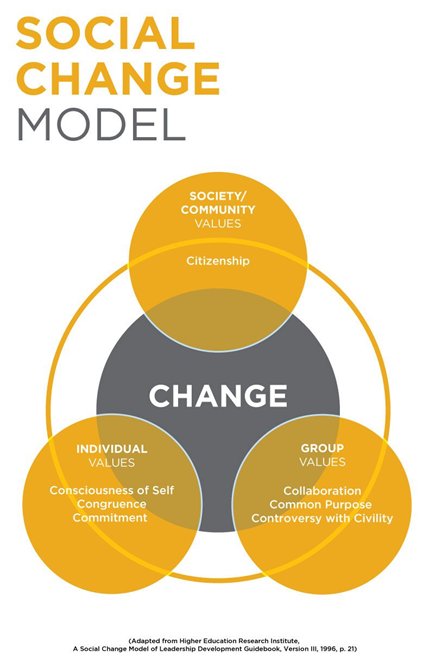Social Change Model of Leadership Development

The Social Change Model of Leadership Development states that leadership is a process, it is collaborative, and that all students have the potential to be leaders. By using this model in the Student Leadership Program, we are preparing students for the world around them and letting them know that they can create change – regardless of their position or power.
The 7 C’s of Leadership
The Social Change Model examines leadership development from three interconnected perspectives: the individual, the group, and the community/society. There are seven critical values that fall into these perspectives. Change is the ultimate goal of the model.
Individual Values
- Consciousness of Self – Being aware of the beliefs, values, attitudes and emotions that motivate one to take action!
- Congruence – Thinking, feeling, and behaving with consistency, genuineness, authenticity, and honesty toward others.
- Commitment – The psychic energy that motivates the individual to serve and that drives the collective effort.
Group Process Values
- Collaboration – Working with others in a common effort. It is the cornerstone value of the group leadership effort because it empowers self and others through trust.
- Common Purpose – Working with shared aims and values. It enables the group to engage in collective analysis of the issues at hand and the task to be undertaken.
- Controversy with Civility – Different viewpoints are inevitable. Civility implies respect for others, a willingness to hear each other’s views, and the exercise of restraint in criticizing the views and actions of others.
Community/Societal Values
- Citizenship – The process whereby the individual and the collaborative group become responsibly connected to the community and the society through the leadership development activity.
Adapted from Higher Education Research Institute, A Social Change Model of Leadership Development Guidebook, Version III, 1996, p. 21